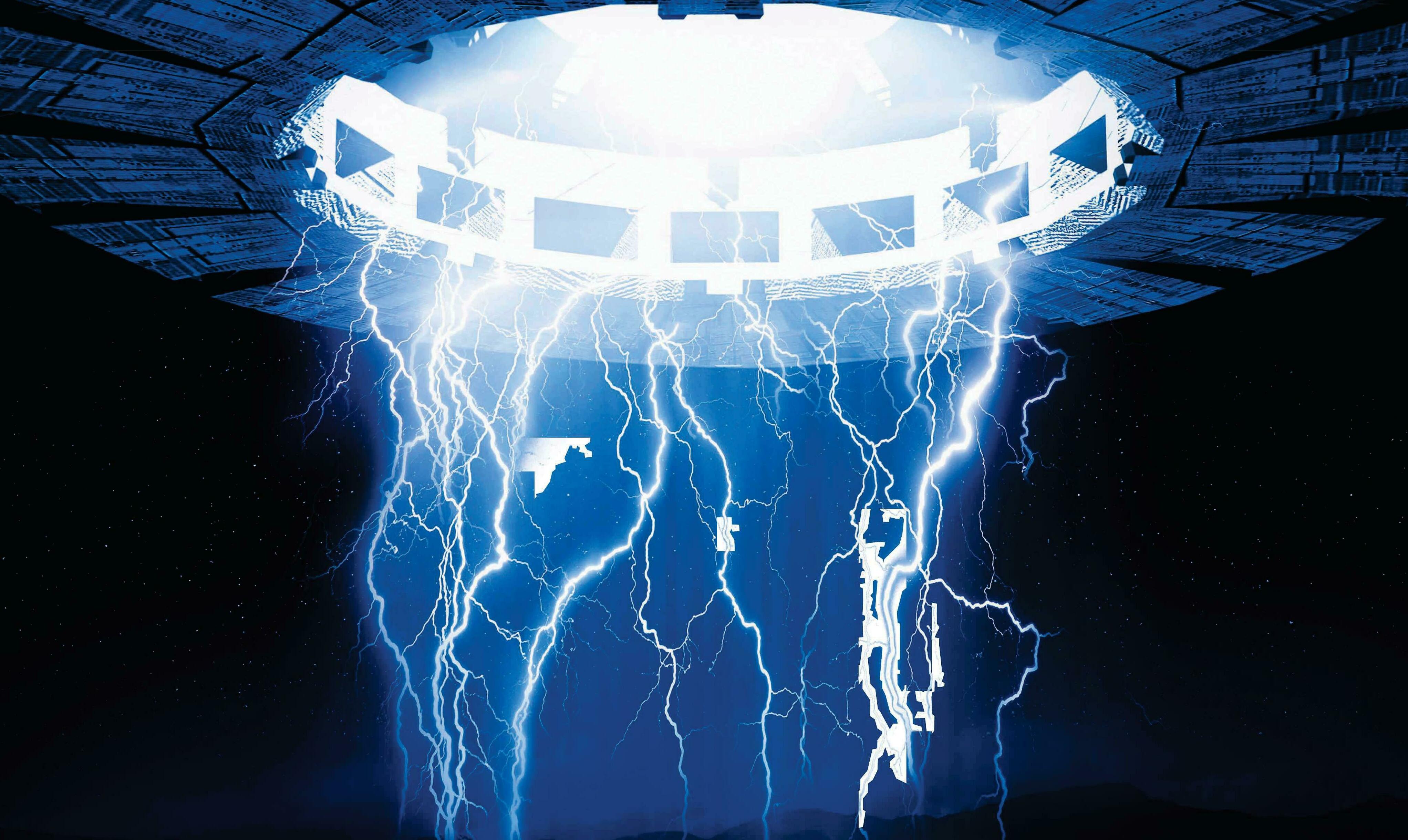Intentar ORO - Gratis
ALL THE LIGHT - WE CAN SEE
BBC Science Focus
|February 2025
New Jersey is the new Roswell – or so it might seem after a swarm of bright lights, glowing orange-red orbs and unidentified flying objects filled the skies throughout December 2024.

As expected, these strange orbs gave rise to a flood of conspiracy theories involving UFOs and foreign interference. One US Republican congressman even claimed the lights were aircraft originating from an "Iranian mothership," a theory swiftly dismissed by the Pentagon.
Although the exact source of the objects remains unconfirmed, US officials suggest that the majority of sightings were most likely caused by – you guessed it – civilian-operated drones.
The New Jersey drone saga is yet another example of how many so-called UFOs have perfectly logical explanations. But not all phenomena are so easily dismissed. For decades, scientists have been baffled by a different kind of mysterious light: ball lightning.
While it's easy to roll your eyes at such stories, there have been eyewitness accounts of weird floating balls of light for centuries - the earliest thought to be in 1195. It's only thanks to the sheer volume of accounts and photographic evidence that scientists have felt the need to investigate these mysterious sightings further.
Many of the reports are from credible sources. For instance, in 1927, renowned quantum theory physicist Walther Gerlach claimed to have witnessed a "bright, luminous yellowish-white ball" emerge from a bolt of lightning. Being a scientist, he used his own hastily acquired observations to work out that the ball of light had travelled 1,225m per second (a little over 4,000ft per second) over three times the speed of sound.
Then there's Dr Roger Jennison, a radio astronomer at the UK's Jodrell Bank Observatory. In 1963, he was travelling on an overnight flight from New York to Washington during a thunderstorm, when a loud, bright electrical discharge suddenly enveloped the plane. Passengers then observed something extraordinary, which Jennison later outlined in a letter to the prestigious journal Nature.
Esta historia es de la edición February 2025 de BBC Science Focus.
Suscríbete a Magzter GOLD para acceder a miles de historias premium seleccionadas y a más de 9000 revistas y periódicos.
¿Ya eres suscriptor? Iniciar sesión
MÁS HISTORIAS DE BBC Science Focus

BBC Science Focus
World's biggest cobweb is home to 100,000 spiders
Spiders don't normally create such large colonies, so there's no need to worry about finding one in your basement
1 min
February 2026

BBC Science Focus
A dementia vaccine could be gamechanging – and available already
Getting vaccinated against shingles could protect you from getting dementia, or slow the progression of the disease
1 mins
February 2026

BBC Science Focus
DATA IN SPACE
An unusual spacecraft reached orbit in November 2025, one that might herald the dawn of a new era.
7 mins
February 2026

BBC Science Focus
Climate change is already shrinking your salary
No matter where you live, a new study has found warmer temperatures are picking your pocket
4 mins
February 2026

BBC Science Focus
A MENTAL HEALTH GLOW-UP
Forget fine lines. Could Botox give you an unexpected mental health tweakment?
3 mins
February 2026
BBC Science Focus
Most people with high cholesterol gene don't know they have it
Standard testing struggles to detect the condition
1 mins
February 2026

BBC Science Focus
HOW CAN I BOOST MY IQ?
If you're serious about getting smarter, it's time to ditch the brain-training apps
4 mins
February 2026

BBC Science Focus
Humans are absolutely terrible at reading dogs' emotions
Think you can tell how our furry friends are feeling? Think again
1 mins
February 2026

BBC Science Focus
HOW TO TEACH AI RIGHT FROM WRONG
If we want to get good responses from AI, we may need to see what it does when we ask it to be evil
3 mins
February 2026

BBC Science Focus
What Australia's social media ban could really mean for under-16s
Many people think social media is bad for our kids. Australia is trying to prove it
5 mins
February 2026
Listen
Translate
Change font size
